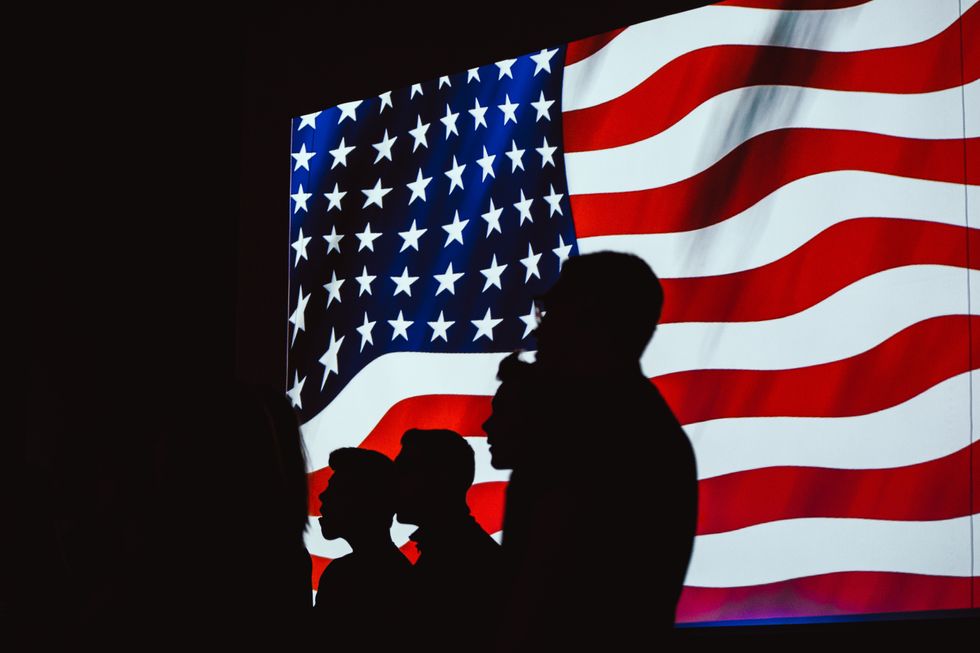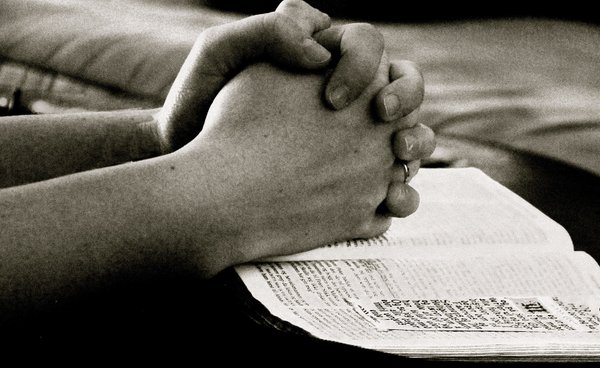Earlier this year, I attended the March For Our Lives in Washington, D.C., organized by students from Marjory Stoneman Douglas High School in Parkland, Florida just weeks after many of them watched their classmates gunned down by a former student. The air seemed ripe for real change on the issues, namely incremental but potentially significant alterations to gun control laws in America. And, due in large part to the efforts of those brave young students, it could be said that the discussion around gun control following the Parkland shooting has been ongoing and productive.
But this has far too often proven to be the exception to the rule.
The truth is, we live in quite the busy time. There seems to be significant bad news somewhere in the world on a daily, repeating cycle (and that's only considering the bad news that media pays attention to, often in Western societies). Even with the limited scope of what we see, the world can start to seem pretty dark when we simply do a quick scan of Google News or outlets such as CNN or Fox News. We see regular mass killings, bombings, shootings, and egregious violations of civil rights; sometimes they take place in our own backyards, and sometimes they take place on the other side of the world.
The common theme I've seen with almost all of these situations, though, is that we tend to forget them rather easily. And that's a problem.
First, an acknowledgement. Most people don't truly forget horrific events; if you asked Americans what the Pulse Nightclub Shooting was, or even what Columbine was, I am fairly confident that the vast majority remember those events well. What I mean to say, however, is that we as American people very easily let these events slip out of our public discourse and consciousness.
This makes sense; after all, these tragedies don't exactly evoke desirable emotions, and they often force us to look at difficult questions that starkly divide and stoke fiery emotion among various portions of the American populace. With what can feel like a furiously rapid (and perhaps increasing) stream of dark events to process, we can very easily get overwhelmed.
But those quickly growing dangers are precisely the reason that we must stop avoiding the hard questions and uncomfortable discussions; indeed, our avoidance could very likely be the greatest contributor to a decline in our security.
The key to progress is not, of course, in walking around and pondering the darkest events we face in human existence on a regular basis. For the average person without a career interest in creating such solutions to do so would drain much of what makes life so enjoyable. Those same great qualities of life make these dark events so tragic as they are.
Rather, what we must do in a democracy if we hope to move forward is have a dialogue on what these events mean for society. We must determine whether or not a tragedy or injustice was caused by preventable circumstances, as they often are, and then we must approach solutions with an open mind. That means being willing to acknowledge our personal biases but still come to the table with one another and look for the answer most objectively likely to stop such problems in the future.
These kinds of conversations aren't easy, not only because they can be downcast in subject matter but also because they have the potential to bring about radical changes in the way we live. At least personally, I know that change is not one of my strong suits, and from my experience, I'd be willing to wager that characteristic is something of a general human one as well.
But if we are not willing to look at and possibly change some of the ways we live as individuals and a society, we are doomed to repeat the patterns that plague us. If we don't, we live as if we are the patient who notices symptoms that worsen over time but refuses to go to the doctor and look for a cure. We might say that we are determined to get better, and we will show our anguish over the symptoms that give us pain, but for all of our well-wishing and attempts to move on, the disease doesn't go away. We have to address it or else it will grow and spread.
I'm not claiming to know the answers to our nation and our world's problems. I'm just saying that if we actually start to finally look for those solutions together, using both our personal experiences and an open mind, we might see improvement. It won't be easy, but neither is doing what it takes to heal from a disease.
What we have to ask ourselves, then, is whether or not it's worth doing the work it will take to heal our nation and our world, piece by piece.



 women in street dancing
Photo by
women in street dancing
Photo by  man and woman standing in front of louver door
Photo by
man and woman standing in front of louver door
Photo by  man in black t-shirt holding coca cola bottle
Photo by
man in black t-shirt holding coca cola bottle
Photo by  red and white coca cola signage
Photo by
red and white coca cola signage
Photo by  man holding luggage photo
Photo by
man holding luggage photo
Photo by  topless boy in blue denim jeans riding red bicycle during daytime
Photo by
topless boy in blue denim jeans riding red bicycle during daytime
Photo by  trust spelled with wooden letter blocks on a table
Photo by
trust spelled with wooden letter blocks on a table
Photo by  Everyone is Welcome signage
Photo by
Everyone is Welcome signage
Photo by  man with cap and background with red and pink wall l
Photo by
man with cap and background with red and pink wall l
Photo by  difficult roads lead to beautiful destinations desk decor
Photo by
difficult roads lead to beautiful destinations desk decor
Photo by  photography of woman pointing her finger near an man
Photo by
photography of woman pointing her finger near an man
Photo by  closeup photography of woman smiling
Photo by
closeup photography of woman smiling
Photo by  a man doing a trick on a skateboard
Photo by
a man doing a trick on a skateboard
Photo by  two men
two men  running man on bridge
Photo by
running man on bridge
Photo by  orange white and black bag
Photo by
orange white and black bag
Photo by  girl sitting on gray rocks
Photo by
girl sitting on gray rocks
Photo by  assorted-color painted wall with painting materials
Photo by
assorted-color painted wall with painting materials
Photo by  three women sitting on brown wooden bench
Photo by
three women sitting on brown wooden bench
Photo by 
 Photo by
Photo by  Photo by
Photo by  Photo by
Photo by  Photo by
Photo by 


 people sitting on chair in front of computer
people sitting on chair in front of computer



 all stars lol GIF by Lifetime
all stars lol GIF by Lifetime two women talking while looking at laptop computerPhoto by
two women talking while looking at laptop computerPhoto by  shallow focus photography of two boys doing wacky facesPhoto by
shallow focus photography of two boys doing wacky facesPhoto by  happy birthday balloons with happy birthday textPhoto by
happy birthday balloons with happy birthday textPhoto by  itty-bitty living space." | The Genie shows Aladdin how… | Flickr
itty-bitty living space." | The Genie shows Aladdin how… | Flickr shallow focus photography of dog and catPhoto by
shallow focus photography of dog and catPhoto by  yellow Volkswagen van on roadPhoto by
yellow Volkswagen van on roadPhoto by  orange i have a crush on you neon light signagePhoto by
orange i have a crush on you neon light signagePhoto by  5 Tattoos Artist That Will Make You Want A Tattoo
5 Tattoos Artist That Will Make You Want A Tattoo woman biting pencil while sitting on chair in front of computer during daytimePhoto by
woman biting pencil while sitting on chair in front of computer during daytimePhoto by  a scrabbled wooden block spelling the word prizePhoto by
a scrabbled wooden block spelling the word prizePhoto by 
 StableDiffusion
StableDiffusion
 StableDiffusion
StableDiffusion
 StableDiffusion
StableDiffusion









